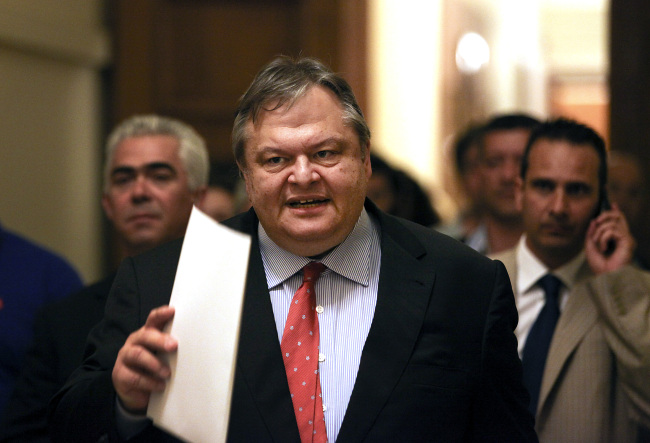ATHENS (AFP) -- Greece on Wednesday was close to forming a coalition that will try to revise an unpopular EU-IMF bailout deal and pull the country out of a harrowing recession that has doomed its recovery efforts.
After two months of political deadlock, the struggling eurozone member is under intense international pressure to get back on track with reforms promised for a bailout that has kept the economy on life support for the past two years.
The International Monetary Fund is already pressing to send a team of experts to Greece as soon as the new government is announced, with conservative New Democracy leader Antonis Samaras poised to become the new prime minister.
New Democracy narrowly won Sunday‘s elections against the the radical leftist anti-austerity Syriza and is set to form a coalition with the socialists Pasok which will also be supported in parliament by the small Democratic Left party.
Samaras was to meet with Pasok leader Evangelos Venizelos at 0900 GMT and then Democratic Left leader Fotis Kouvelis after that, New Democracy said.
The liberal Kathimerini daily said on Wednesday: “The coalition government agreement is being finalized,” while the centre-left newspaper Ta Nea said:
“They are trying to solve the crossword puzzle of the new government.”
 |
Evangelos Venizelos, leader of Pasok, arrives for a meeting at the Greek parliament to discuss the formation of a new government in Athens on Monday. (Bloomberg) |
Venizelos said following a round of talks on Tuesday that a coalition agreement was possible “by midday tomorrow” -- just hours before a three-day deadline for conservative New Democracy to form a coalition runs out.
New Democracy took 129 of the 300 parliamentary seats including an extra 50 seats given to the winner and Syriza took 71 seats after garnering more than a quarter of the vote in a country struggling with its fifth year of recession.
Pasok took 33 seats and Democratic Left won 17 seats, which would give the expected new government a majority of 29 seats to pass controversial reforms.
Officials from the three parties were set to meet at 1000 GMT to hammer out a common policy statement after initial discussions on Tuesday lasting six hours.
The government’s first priority will be to restore contact with international auditors and resume the flow of loans that was suspended ahead of the election.
Foreign creditors like Germany have stressed that they are willing to give Greece more time to meet a deficit reduction target currently set at 2014 but will not change the actual substance of the bailout deal agreed in February.
The 61-year-old Samaras, a US-educated former foreign minister, is under pressure to go further, however, and promised in his campaign that he would cut property and sales taxes and freeze reductions in public salaries and pensions.
“There can be no discussions about changing the substance of the agreements but as I indicated three or four weeks ago we can by all means talk about extensions,” Eurogroup chief Jean-Claude Juncker told Austrian radio on Tuesday.
But ahead of talks among euro finance ministers on Thursday, a senior European Union official appeared more open to possible concessions, saying it would be “delusional” and “stupid” to keep the loan agreement intact.
“We would be signing off on an illusion,” the source said.
This “will not be done in two weeks‘ time,” the official said, but likely “in the course of the summer.”
Under the current conditions, Greece has to cut 11.5 billion euros -- the equivalent of five percent of its gross domestic product -- by 2014, although Greek parties have called for this deadline to be put off to 2016.
Greece has been forced to seek bailouts twice after initially hiding its debt woes, first for 110 billion euros in 2010 and then for 130 billion euros earlier this year. It has also had a 107-billion-euro private debt write-off.
Greece has stepped up short-term debt auctions to restock its depleted treasury as before the elections officials cited in the Greek press warned there were only enough cash reserves to pay salaries and pensions until July 20.
And its banks are in pretty poor shape despite a recapitalization effort.
The eurozone is hoping the result can draw a line under a lengthy period of uncertainty that has unsettled markets in a country where the European sovereign debt crisis kicked off in 2009 before spreading across the continent.








